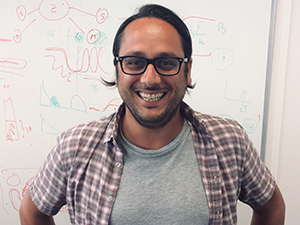A new study has revealed a promising therapeutic strategy for pancreatic cancer, offering new hope for people living with this disease. The findings showed that a combination of two existing experimental treatments was more effective than either treatment used alone.
Pancreatic cancer is known for being difficult to treat, and it remains one of the deadliest cancers. This study suggests that mechanical disruption and viral immunotherapy can work together to alter the nature of the immune cells surrounding the tumour, making it more responsive to treatment.
The research team also uncovered new details about each treatment’s interactions with the immune system. In the longer term, this information could pave the way for more effective, personalised treatments for pancreatic cancer and potentially other solid tumours too.
Researchers from The Institute of Cancer Research, London, led the study, and the findings were published in the journal Pharmaceutics. The research was funded by Pancreatic Cancer UK.
Combining cutting-edge techniques
The team decided to try combining two treatments currently being evaluated in clinical trials. The first, called boiling histotripsy, is a non-invasive technique that uses focused ultrasound pulses to mechanically disrupt tumour tissue. The second involves the delivery of oncolytic reoviruses, which are viruses that selectively infect and destroy cancer cells while stimulating the body’s immune response.
The scientists chose to use orthotopic mouse models – meaning that the tumours were in the pancreas itself rather than somewhere more convenient to study, such as under the skin. This approach makes it possible to examine how the cancer behaves, spreads and responds to treatments in a setting that more closely resembles pancreatic cancer in humans.
Understanding how the tumour interacts with the surrounding cells is especially important for aggressive cancers such as pancreatic cancer, where the tumour’s environment significantly influences its resistance to treatment.
After treating the orthotopic pancreatic tumours with boiling histotripsy, oncolytic reoviruses, or both together, the researchers used a combination of advanced techniques to analyse changes in immune cell populations and gene expression.
Striking results reveal a new challenge
The team’s analysis revealed that boiling histotripsy caused visible cellular disruption within six hours of treatment. In addition, both boiling histotripsy and reovirus therapy reduced the numbers of certain white blood cells – regulatory T cells and macrophages, respectively – that can suppress the immune system’s response against tumours.
When combined, the two treatments worked together to generate a stronger response from the body’s natural immune defences than each treatment could produce alone.
Given that the suppressive effects of the immune cells surrounding the tumour are a primary cause of treatment resistance in pancreatic cancer, this dual treatment approach has the potential to transform the treatment landscape for future patients.
However, through studying the gene and protein activity surrounding the tumours in unprecedented detail, the researchers discovered that immune cells called neutrophils, which are usually helpful to the body, can become harmful in pancreatic tumours. Instead of defending the body, they send out signals that weaken the immune response and help tumours grow.
What’s more, treatment with boiling histotripsy and oncolytic reovirus seemed to draw neutrophils to the pancreatic tumours, where they countered the cancer-fighting effects of the therapy.
This poses a new challenge to researchers, who will need to find a way to block or control these neutrophils in order to maximise the effectiveness of treatment.
“A big shift in thinking”
First author Dr Petros Mouratidis, a research fellow in the Division of Radiotherapy and Imaging at The Institute of Cancer Research (ICR), said:
“We were surprised by our findings because for many years, most research has focused on two cell types – macrophages and fibroblasts – when studying why pancreatic tumours grow and resist treatment. But our study points to a big shift in thinking, where the neutrophil role takes centre stage in keeping these tumours hidden from the immune system.
“This opens up urgently needed new opportunities for targeting pancreatic cancer cells and developing better treatment strategies. We are excited to see where this research can take us.”
Senior author Professor Gail ter Haar, Group Leader of the Therapeutic Ultrasound Group at the ICR, said:
“For people with pancreatic cancer, survival is often measured in months rather than years. If our findings translate to patients, combining boiling histotripsy with reovirus therapy could make pancreatic tumours respond to immunotherapy, giving doctors new ways to fight this very aggressive cancer.”
The next step for the team is further preclinical research, in which they will test a three-part approach, adding a treatment that blocks neutrophils to the dual therapy they have already trialled.
“The hope,” said Dr Mouratidis, “is that by combining all three treatments, we can slow down tumour growth more effectively and help people with pancreatic cancer live longer.”
Image credit: Senjin Pojskić, Pixabay
.tmb-propic-md.jpg?Culture=en&sfvrsn=c25d2b2f_9)
 .
.
